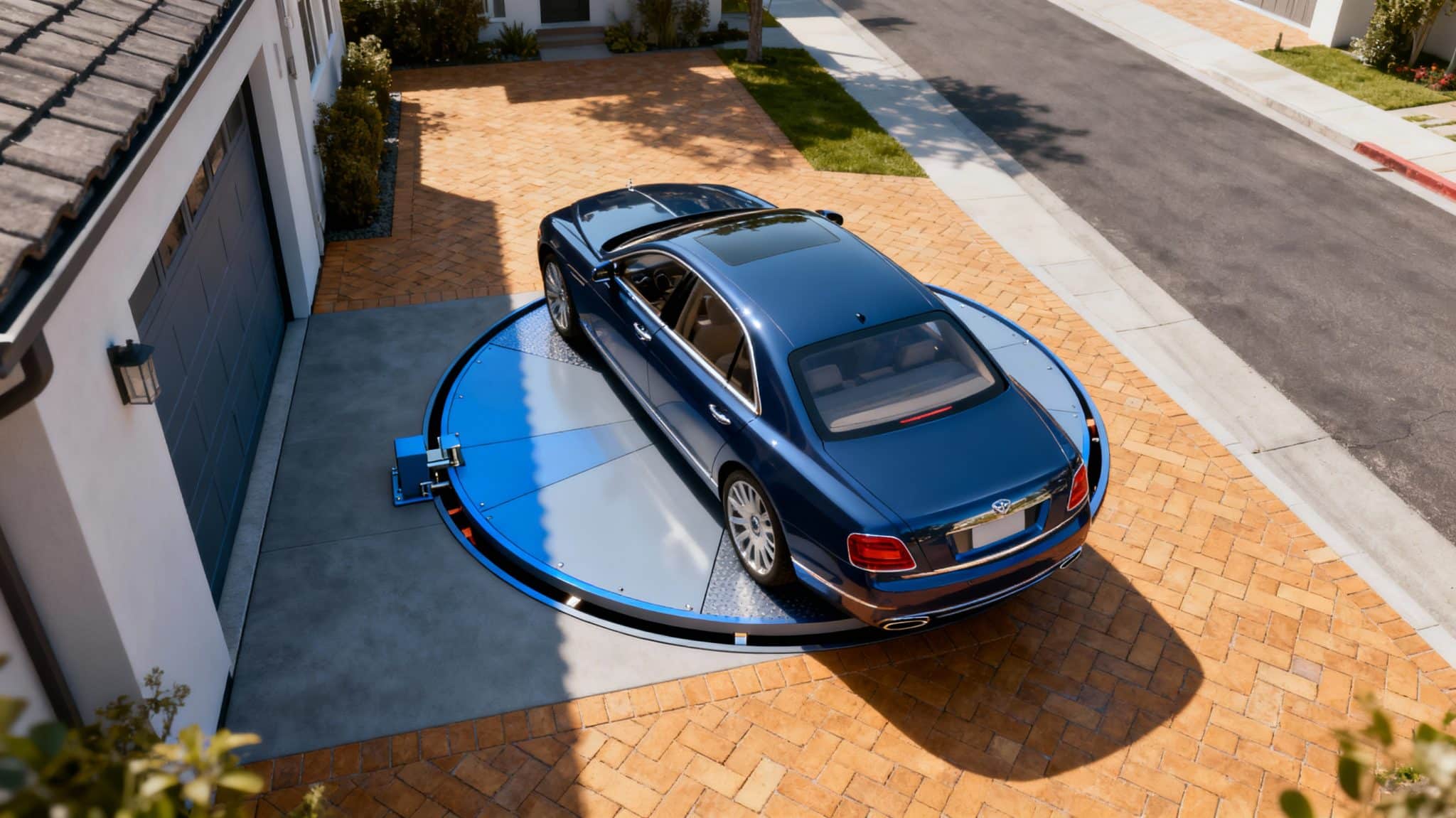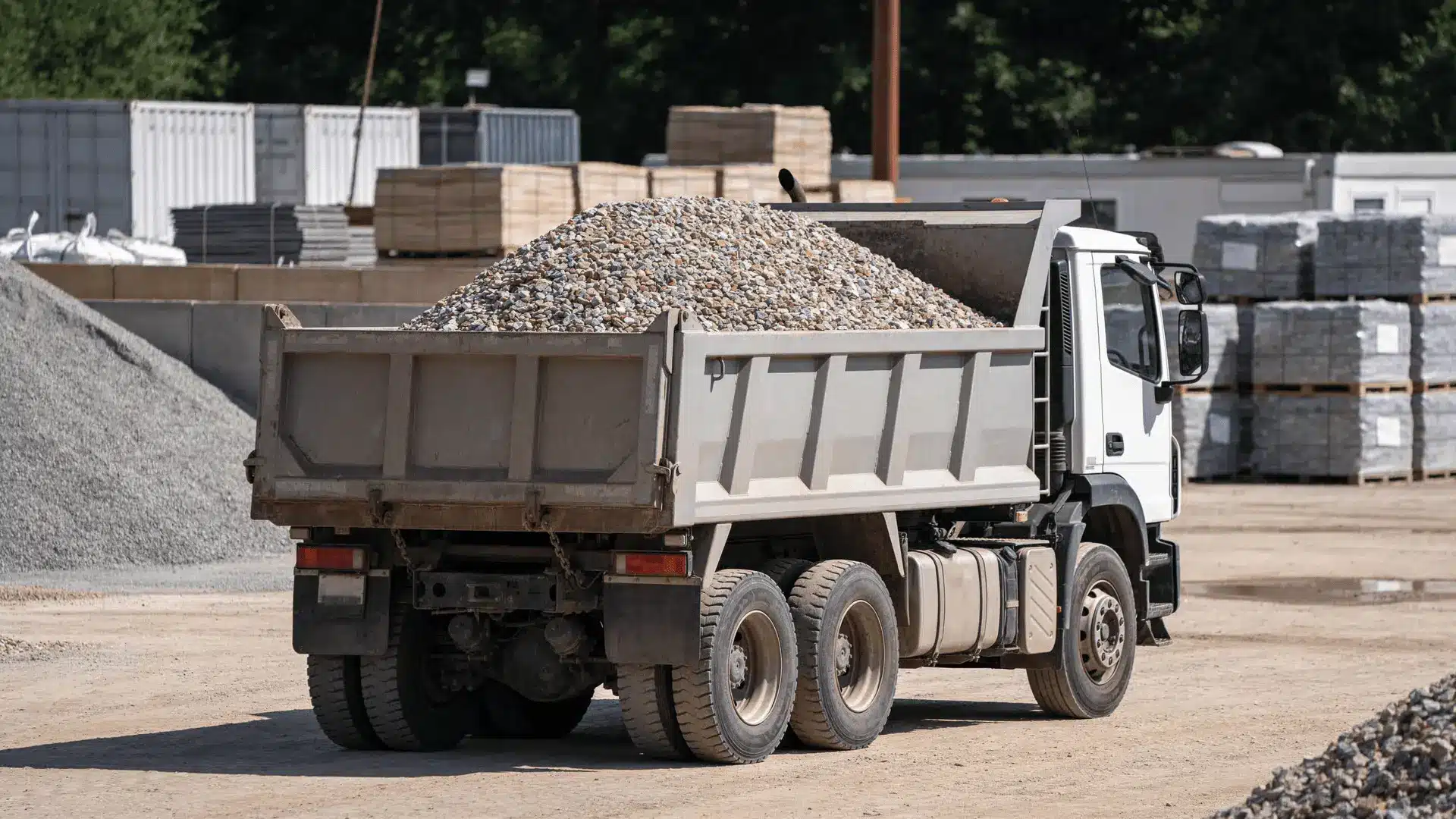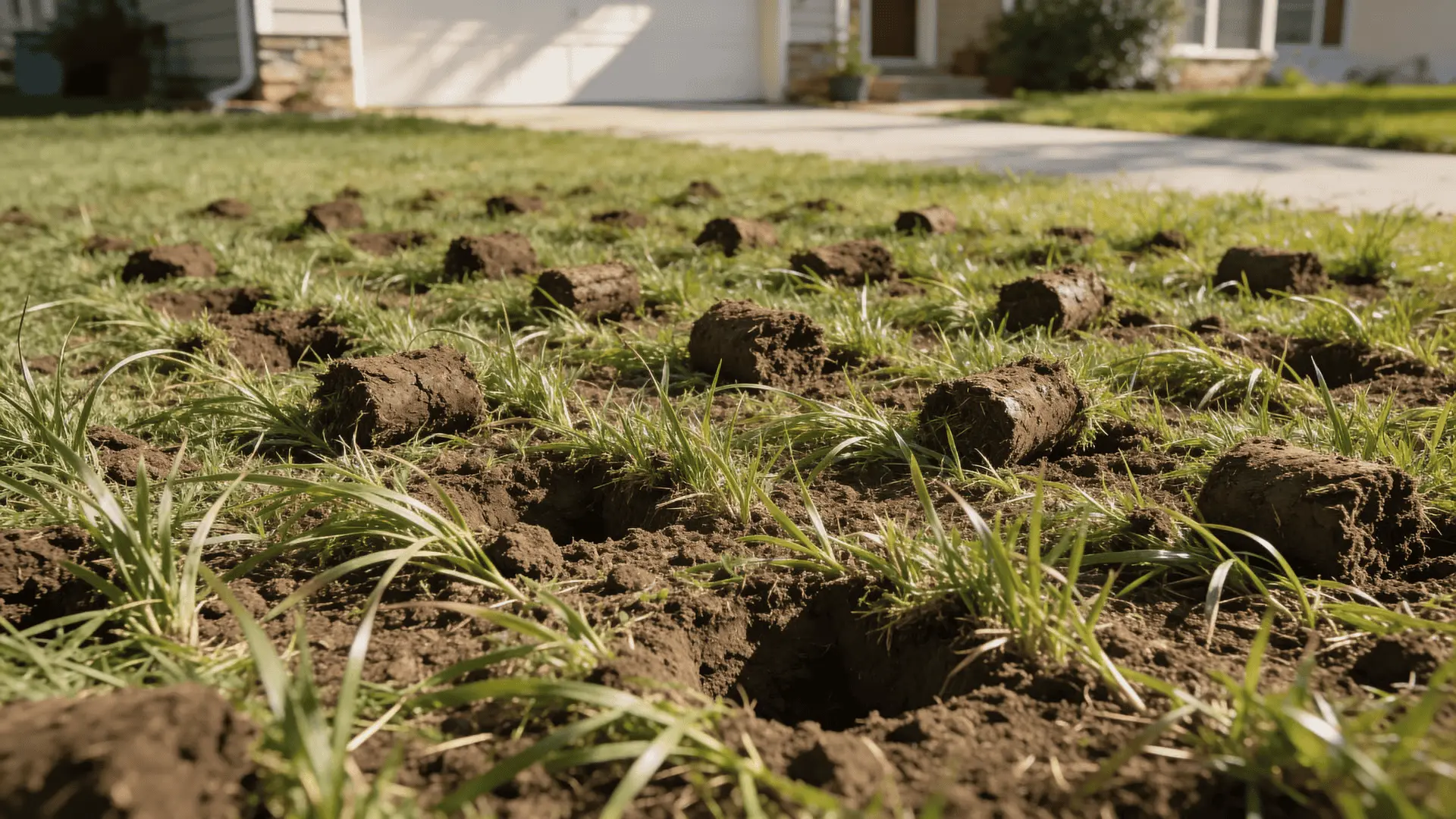If your driveway forces you into a stressful multi-point turn or backs you blind into traffic, a car turntable can provide an elegant solution. These rotating platforms allow you to turn your vehicle in place, eliminating the need for complex maneuvering in tight spaces.
Turntable Feasibility: Space And Drainage Checks In 15 Minutes
Before investing time in detailed planning, perform these two simple checks to determine if a turntable could work for your property:
- Space requirements: Measure and mark a circle where the platform would sit. Standard diameters range from 14-16 feet for sedans to 18-20 feet for larger vehicles.
- Site conditions: Check drainage by pouring water where the platform would go. Good drainage is essential for pit installations.
These quick tests take less than 15 minutes and immediately reveal whether a turntable is feasible for your location.
How Car Turntables Work: Motors, Bearings, And Safety
A car turntable operates like a robust, low-profile carousel designed for vehicles. The car sits on a circular deck supported by a central bearing and perimeter rollers. An electric motor drives a gear ring or wheel at the deck’s edge, rotating the platform smoothly through 360 degrees.
Typical rotation takes 30-60 seconds for a complete turn. Safety features include soft start and stop mechanisms, emergency stops, limit switches, and sensors that halt movement if obstructions are detected.
Manual versions use precision bearings that allow rotation with minimal force, sometimes incorporating geared assistance for easier operation.
Installation Options: Motorized Vs Manual, Surface Vs Pit
Choosing the right turntable involves several key decisions:
Power Source:
- Motorized systems work best for daily use and users with mobility concerns
- Manual systems offer budget-friendly alternatives for occasional use
Installation Method:
- Surface-mounted units require no excavation and add 3-6 inches of height
- Pit installations sit flush with the driveway but require excavation and drainage
Size and Capacity:
- Diameters typically range from 14-20 feet
- Most residential platforms support 2-3 tons
- Vehicle weight plus safety margin determines capacity needs
Costs And Budget: Equipment, Install, And Total Project Ranges
Turntable costs vary significantly based on size, features, and installation complexity similar to semicircular driveway costs:
Equipment Costs:
- Manual platforms: $3,000-$5,000
- Motorized residential systems: $8,000-$12,000
- Premium or larger units: $13,000-$20,000+
Installation Expenses:
- Surface mount installation: $1,000-$5,000
- Pit installation with excavation: Additional $5,000-$10,000
- Electrical work: $500-$1,500
Total Project Costs:
- Surface-mounted motorized: $10,000-$18,000
- Pit-mounted motorized: $15,000-$30,000+
- Manual systems: $4,000-$9,000
Permits, HOA Guidelines, And Drainage: Planning Steps
Local regulations vary significantly. Some jurisdictions treat turntables as mechanical equipment requiring simple permits. Others may request structural documentation or drainage plans. For properties on busy streets, turntables often satisfy forward egress requirements when driveway widening isn’t possible.
Homeowners associations typically focus on visible height and finish materials. Check your HOA guidelines early in the planning process.
Drainage remains critical for pit installations. Options include drain lines, gravel sumps, or small pumps. In freeze-prone climates, consider frost depth and appropriate de-icing materials compatible with galvanized steel finishes.
Maintenance And Daily Use: Routine Checks And Lubrication
Operating a turntable feels similar to using a garage door opener. Press a button, the platform rotates, and you drive forward. Noise levels compare to typical garage door mechanisms.
Regular maintenance involves:
- Keeping the deck clear of debris
- Periodic bearing and roller inspections
- Occasional lubrication per manufacturer specifications
- Checking drainage systems in pit installations
Anti-skid surfaces maintain safety in wet conditions. Most warranties span 1-5 years, covering mechanical components and finishes.
Alternatives To Turntables: Widening, Pads, Gates, Visibility
Before committing to a turntable, evaluate these alternatives and consider semicircular driveway ideas for small yards:
- Widening the driveway apron or curb cut where permitted
- Adding a hammerhead or mini turnaround pad
- Automating gates to improve clearance
- Installing mirrors or cameras for better visibility
- Choosing vehicles with shorter wheelbases
- Reorienting parking angles to reduce backing complexity
What Usually Works: 16‑Foot Motorized, 120V, Pit Install
Field experience shows that 16-foot motorized platforms solve approximately 90% of residential access challenges. These units typically rotate in 45 seconds using standard 120V power. Larger vehicles generally require 18-20 foot platforms, often with pit installation for optimal aesthetics.
The primary installation variable isn’t the machinery but site-specific factors like drainage, utilities, and access. This explains why initial feasibility checks prove so valuable.
Next Steps: Feasibility Visit, Quotes, One‑Day Installation
Whether planning independently or seeking professional guidance, a feasibility visit can verify requirements using full-size templates, assess drainage and slope, review electrical needs, and provide detailed cost estimates.
Most contractors provide quotes within a week and complete installations in a single day once site preparation is finished. The result transforms daily driving from a stressful maneuver into a simple, controlled rotation that points your vehicle safely toward the street.








